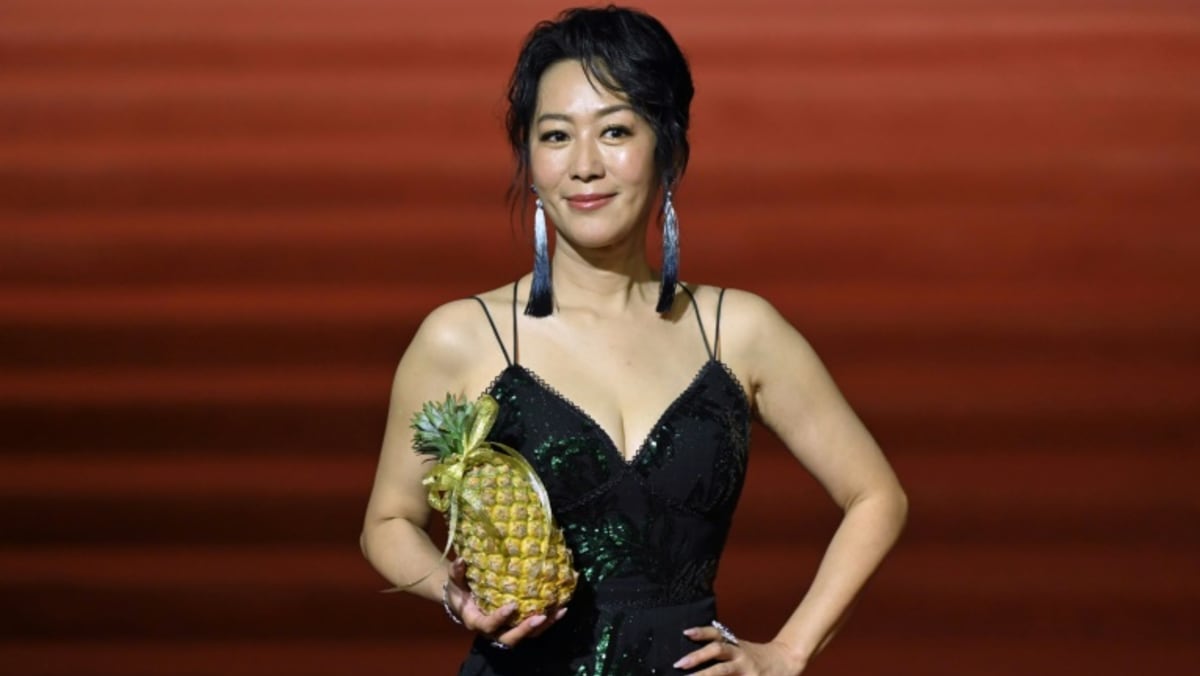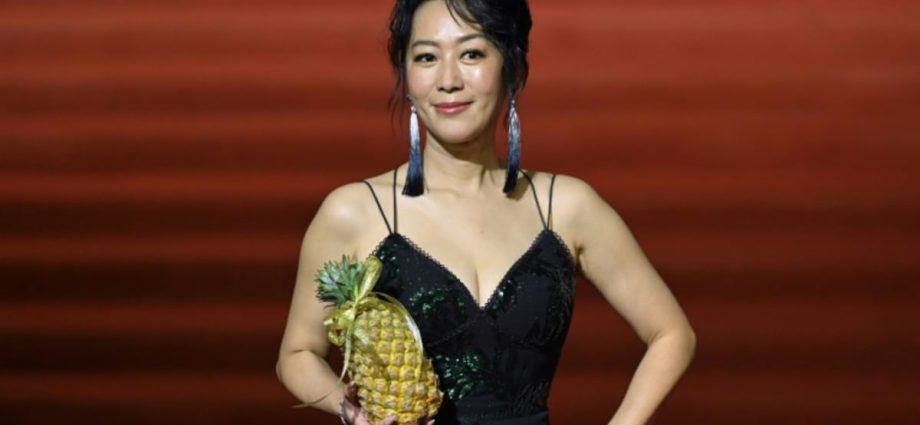
Beijing banned its entertainers from joining Golden Horse, dubbed the Chinese-language Oscars, after a Taiwanese director voiced support for the island’s independence in an acceptance speech in 2018.
China claims democratic Taiwan as its own territory and has long blacklisted its stars over any perceived backing for the island’s independence.
There were no mainland films in the 2019 nomination list and several Hong Kong movies dropped out that year, while big commercial productions were conspicuously absent at both the 2020 and 2021 awards.
But on Saturday, the red carpet was graced by Hu, nominated for best actress in the education drama Carp Leaping Over Dragon’s Gate.
Dressed in a shimmering gown holding a pineapple in her hands, she was accompanied by Chinese film director Yan Xiaolin and some of the film’s cast.
“Our film’s (Chinese) name is Pineapple and Taiwan’s audiences have told me that pineapple means good luck” in Taiwanese culture, Hu said in a brief televised interview.
Hu lost to Taiwan’s 12-year-old Audrey Lin (Trouble Girl), the night’s biggest dark horse who became the youngest ever best actress winner in Golden Horse history.
Lin also saw off Hong Kong’s Jennifer Yu (In Broad Daylight) and Chung Suet-ying (The Lyricist Wannabe), who both attended Saturday’s event.
Taiwanese Hsiao Ya-chuan bagged best director for his family drama Old Fox, while compatriot Wu Kang-ren claimed best actor for playing a mute man in the Malaysian film Abang Adik.
The award for best documentary short film went to The Memo, a video diary of the pandemic lockdown made by a filmmaker couple trapped in a small Shanghai apartment.
Attendance by the mainland Chinese actors was a departure from previous years.
In 2022, Chinese star Cya Liu – nominated for best actress for Hong Kong crime thriller Limbo – gave the ceremony a miss, with no reasons given.
Chinese director Huang Shuli collected the best documentary short film award in person last year – a rare appearance by a mainland filmmaker since the fallout.

